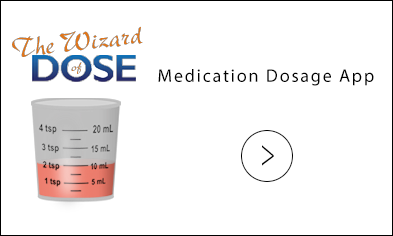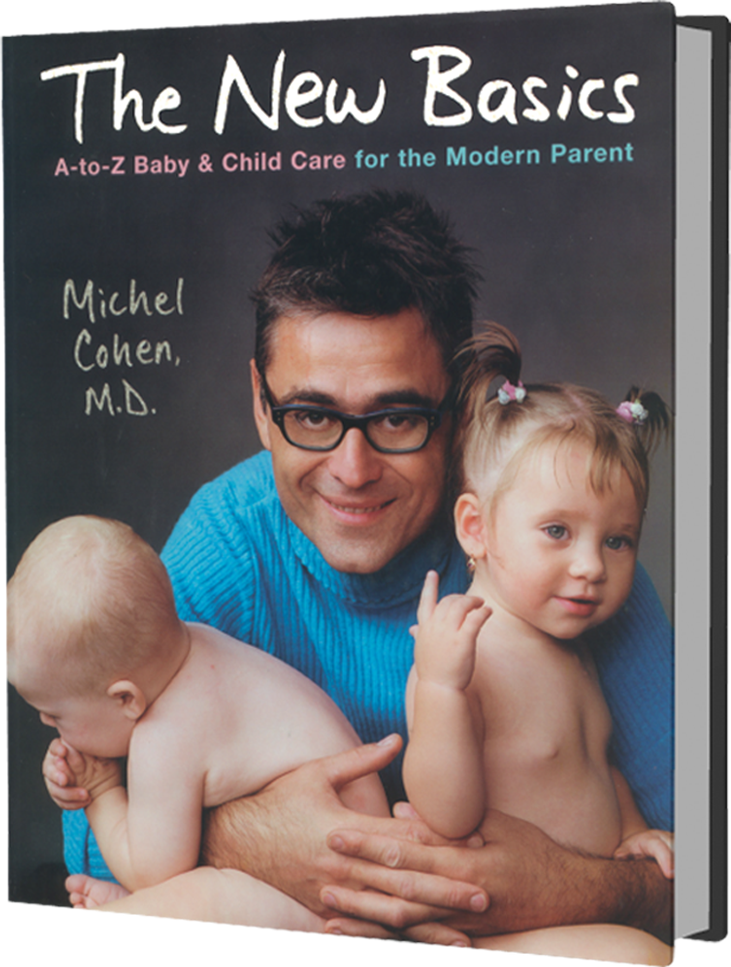
Asthma
Asthma is an overreaction and constriction of the small “pipes” of the lungs. It appears from time to time in a predisposed child in response to irritants that trigger mucus production and tighten the passageways.
Asthma is inherited. Typically, one of the parents either outgrew asthma as a child or still has occasional attacks. Although infants and toddlers can have breathing problems that resemble asthma, true asthma usually does not reveal itself until the end of the second year. The majority of asthmatic children will experience mild or moderate attacks that last a couple of days, during which breathing is difficult and the child has a deep, productive cough. Respiration is shallow and is accompanied by a characteristic fine wheezing (which is a whistling sound heard with exhalation). Before age five, the likeliest triggering agents are by far colds and flus. Beyond this age, respiratory allergens such as dust, pollens, and animal dander can be factors, as can food allergens and even exercise.
Only a small minority of asthmatics are in any serious danger. Most folks outgrow asthma: The attacks become less frequent and less intense until they disappear completely, although some kids remain asthmatic into adulthood.
How to Recognize a Mild Attack
In a mild asthma attack, Jimmy can still talk and sustain an activity such as playing. His chest moves in and out quickly, but the muscles of the chest and neck do not “pull” hard. The skin remains pink.
How to Recognize a Moderate Attack
Jimmy breathes quickly, and you can hear some wheezing. His activity is reduced, but he’s still moving around. He isn’t working hard to breathe, and his skin is still pink.
How to Recognize a Severe Attack
In a severe asthma attack, Jimmy’s breathing is labored, or in other words he has to work hard to inhale and exhale. He looks distressed and pale (maybe even blue around the mouth, with semi-closed eyes), and his only preoccupation is breathing. In addition, his neck muscles and those between his ribs become clearly visible in between breaths. A severe attack will require treatment at the emergency room.
How to Treat an Asthma Attack
Asthma treatment relies on two different classes of medication: muscle relaxants and steroids. When a (mild) attack occurs, it lasts for a few days and then subsides spontaneously. During that time, medication should be minimized; the child’s comfort is paramount, but asthma medications have significant side effects, even in small doses. If Jimmy has mild difficulty breathing but is otherwise normally active, no treatment is warranted, since there is nothing to improve. For a moderate attack, asthma medications are administered according to the level of discomfort. A severe attack is treated in a hospital.
Medications That May Be Used
Muscle Relaxants
(Inhaled) Muscle relaxants such as Albuterol increase airflow by relaxing the muscles around the pipes. They don’t cure or prevent asthma; they simply improve the breathing until the attack wanes. They are best administered with a nebulizer, a device that delivers the medication in a fine mist. (They also come in handy manual pumps, which are great for older children who have good coordination.)
In terms of side effects, the lungs are the only thing these medications relax. Kids become quite jumpy on them, and their hearts beat rapidly for an hour or so after the treatment. Compared to impaired breathing, this is a minor problem, but it’s a good reason not to overuse them if respiration is only minimally compromised. These muscle relaxants act almost instantaneously but have short-lived effects. The instructions say to take them every four hours, but at the peak of an asthma attack, you can administer them frequently, as often as every twenty minutes for a few hours, since young children have strong hearts. However, if you reach the point where you’re administering this kind of drug three or four times in a row before seeing a positive effect, it probably indicates a need for tighter medical supervision, so call your doctor for advice.
Steroids
Oral steroids act more slowly than muscle relaxants, but they tackle the problem at its source by reducing the inflammation of the pulmonary pipes. In the right situation (e.g., when an asthma attack lingers or if breathing seems to be worsening despite the muscle relaxants), short courses of steroids have tremendous benefits with no side effects. They greatly reduce the severity of the attack and can prevent a hospital stay. But if used too often, they can have short- and longterm repercussions, such as a predisposition to infection and disturbance of bone growth. Daily inhaled steroids should be reserved for children who suffer recurrent asthma attacks in spite of all other preventive measures.
Medications to Avoid
Muscle relaxants and steroids are the only two types of medicine that are effective in treating asthma. Avoid cough suppressants since coughing helps clear mucus from the breathing pipes. If Jimmy’s nocturnal hacking is preventing him from sleeping, however, you can bend this rule.
- Limit exposure to smoke, dust, and other irritants. Remove from an asthmatic child’s room anything that can harbor these: carpets, stuffed animals, plants, books, curtains, and down pillows and comforters. Wrap his mattress and pillows in plastic or zippered antiallergen cases to control the level of allergenic particles and dust mites.
- Vacuum the house thoroughly and regularly.
- Severe asthmatics commonly receive the flu vaccination in an effort to minimize their chances of contracting a triggering virus, but the vaccine’s effectiveness is very limited. Common colds, the main cause of asthma in children, can’t really be prevented.
- In cases of allergic asthma, avoiding allergens is important. But don’t rush to give away the family pet just because Lucy has had a mild reaction to cat hair [See: Pets].
- Starting Jimmy on a nebulizer at the first sign of a cold is relatively inefficient in preventing an attack, and exposes him to side effects.
- For children who have frequent bouts, there is a medication called Singulair, which is supposed to prevent the irritation of the airway but has significant side effects, among others, erratic behavior.
- Herbal and homeopathic treatments have no proven benefits, nor do dietary changes. Parents often try these options, and I can tell you firsthand that, unfortunately, I have seen no clear benefit from any alternative therapies or specific diets.
If your child is predisposed, there is little you can do to prevent asthma. Breast feeding may provide a small protective factor, but it is unclear to what extent.
If one of us has asthma, what are the chances our child will get it?
Hard to say. There will be a definite predisposition, but it’s not a sure shot. You’ll just have to wait and see.
Does eczema predispose to asthma?
Those with asthma often have eczema, but most people with eczema don’t have asthma, so in a word, no.
Could a persistent cough be asthma?
The jury is still out on this one. For me, asthma has to include a significant amount of wheezing. In any event, asthma medications have little effect on these lingering coughs and should be avoided because of their side effects. Also, if it really is asthma you’re dealing with, the cough helps by bringing up the mucus.




 MEDICATION DOSAGE
MEDICATION DOSAGE

